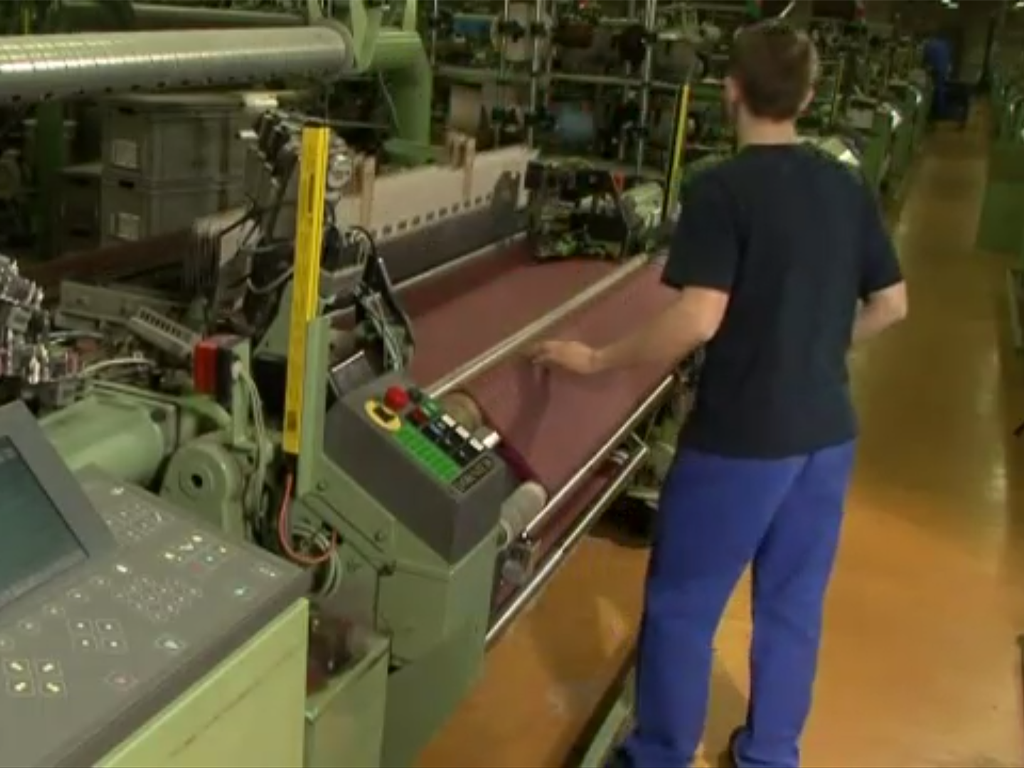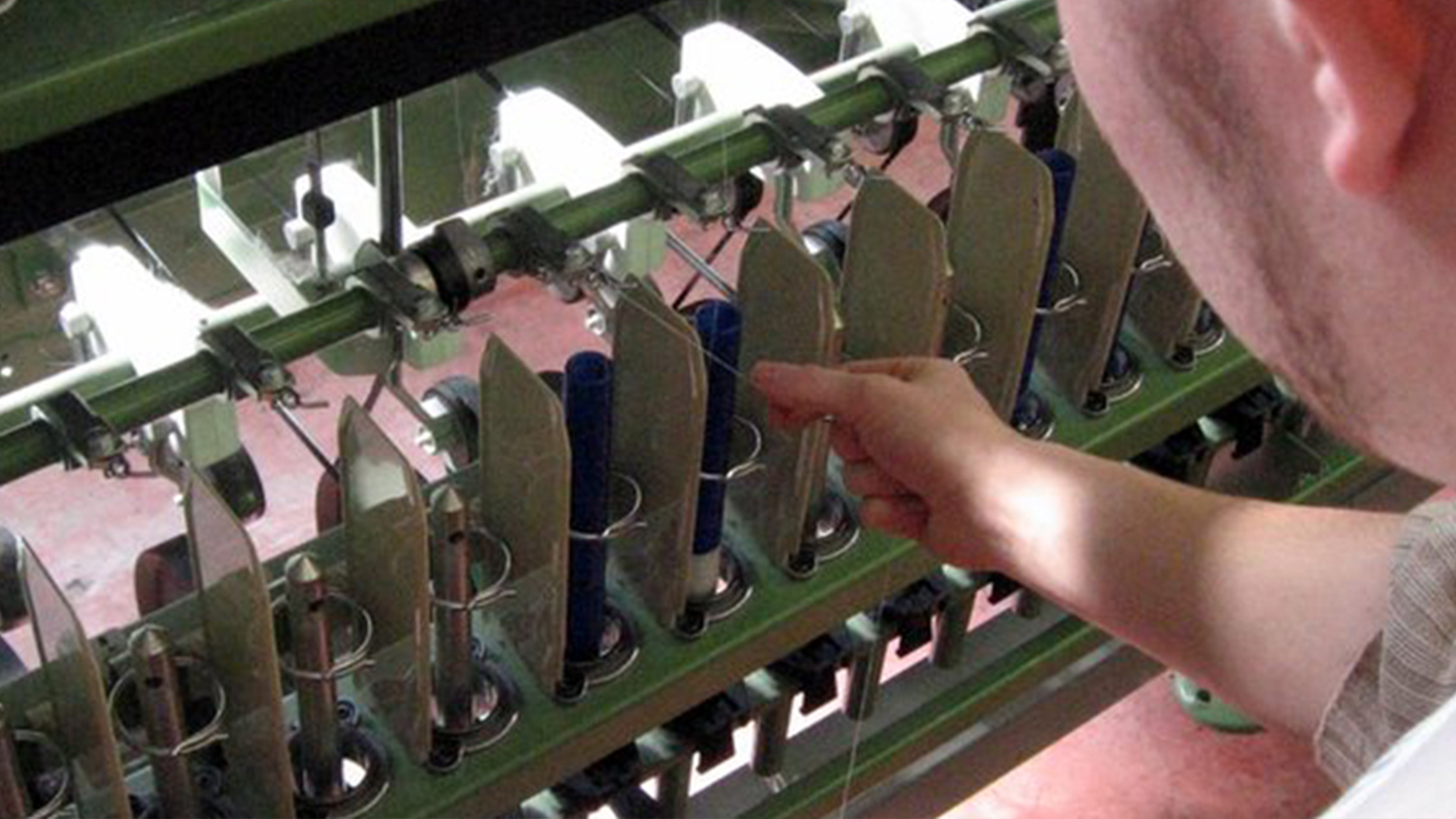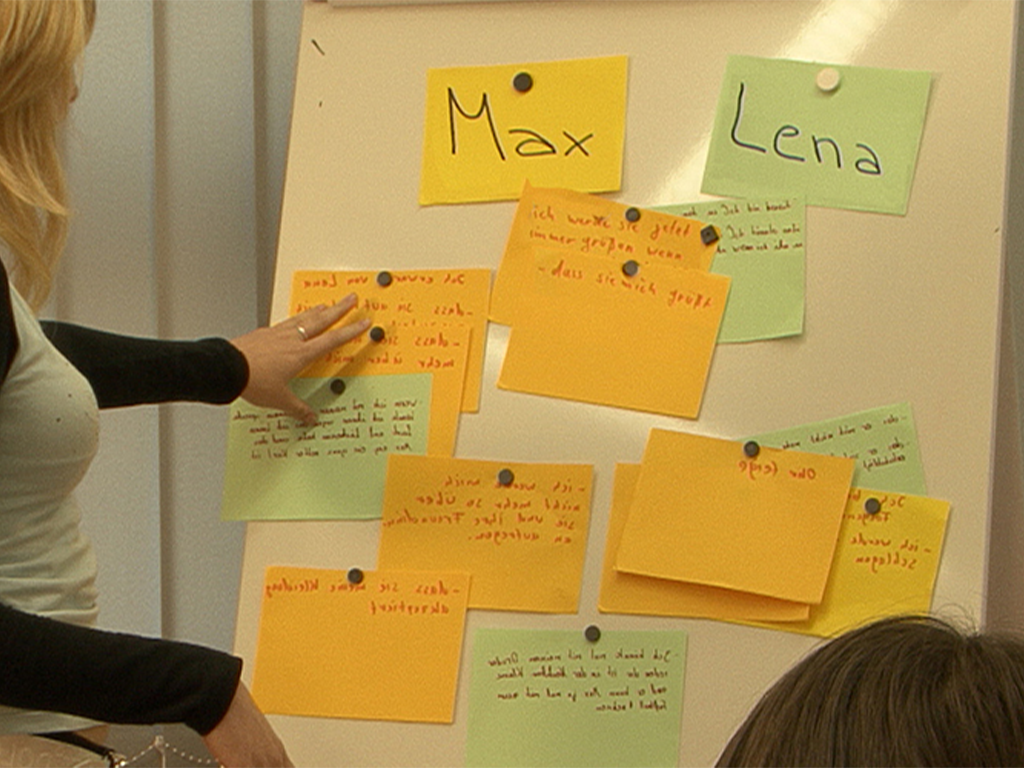 Vocational Education
Vocational Education


4656994 / 5551027
Textile Production Mechanic
Job Prospects Today
Setting, operating, monitoring, maintaining, servicing and repairing production machines – all these are tasks of a textile production mechanic. Only if the production equipment functions flawlessly and the work processes run smoothly and efficiently, textiles of all kinds and of the highest quality can be produced. Textile production mechanics undergo a broad vocational training. This enables them to work in all branches of the textile industry: in weaving mills, spinning mills, knitting mills, warp knitting mills or elsewhere in the textile industry. Qualifications required for this job are GCSEs or a university entrance qualification. Furthermore, soft skills such as a sense of responsibility, diligence, accuracy and reliability are expedient. The job of a textile production mechanic is a positive challenge for all those interested in engineering and manufacturing as well as in textile fabrics and patterns.
Play trailer

Curriculum-centred and oriented towards educational standards
Matching
Internet Addiction
The film consists of two parts. The first part is the 15-minute short film “In the Net”. It describes the problem of excessive Internet use in a humorous way, in particular the risk of losing touch with reality when chatting. The second part illustrates with three real persons how Internet addiction can develop and the problems encountered by those who are afflicted. The authentic statements are commented by an experienced therapist. For many pupils, the issues addressed here are related to their everyday lives. What is a “sensible” use of the Internet, where does pathological addiction start? In contrast to addiction to alcohol, nicotine or drugs, the public seems to be largely ignorant of the problem of this addiction, which is not related to any substance abuse. The film provides material for discussion in the classroom (crossdisciplinary) and can be used as a basis for the formulation of prevention strategies.
Peer Mediation
Lena and Max attend the 7th form. Max is new in class. During a break, Max notices that Lena and her friend are laughing at him again. Max loses his temper! He slaps Lena in the face. That hurts and Lena runs back into the classroom with a red cheek. The growing conflict between the two has escalated. Just like Lena and Max, every day pupils all over Germany have rows with each other. At the Heinrich Hertz Gymnasium in Thuringia, pupils have been trained as mediators for years. At set hours, they are in a room made available by the school specifically for mediation purposes. The film describes the growing conflict between Max and Lena and shows a mediation using their example. In doing so, the terms “conflict” and “peer mediation” are explained in a non-technical way. The aims of peer mediation and its progress in five steps as well as the mediators’ tasks are illustrated. The art of asking questions and “mirroring”, which the mediators must know, is described and explained. Together with the comprehensive accompanying material, the DVD is a suitable medium to introduce peer mediation at your school, too.









